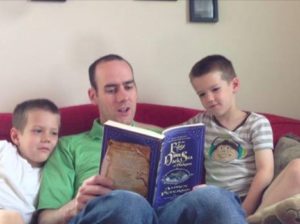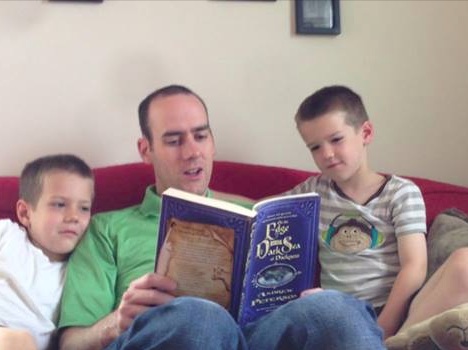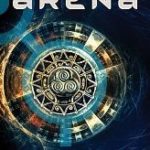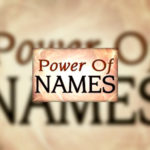Fiction Friday – On The Edge Of The Dark Sea Of Darkness
 On The Edge Of The Dark Sea Of Darkness by Andrew Peterson is the first book in the Wingfeather Saga, a series for middle grade and young adults. Book four, The Warden And The Wolf King releases next month.
On The Edge Of The Dark Sea Of Darkness by Andrew Peterson is the first book in the Wingfeather Saga, a series for middle grade and young adults. Book four, The Warden And The Wolf King releases next month.
Book Blurb
Once, in a cottage above the cliffs on the Dark Sea of Darkness, there lived three children and their trusty dog Nugget. Janner Igiby, his brother Tink, their crippled sister Leeli are gifted children as all children are, loved well by a noble mother and ex-pirate grandfather. But they will need all their gifts and all that love to survive the evil pursuit of the venomous Fangs of Dang who have crossed the dark sea to rule the land with malice and pursue the Igibys who hold the secret to the lost legend and jewels of good King Wingfeather of the Shining Isle of Anniera.
– – – – –
An Introduction to the Igiby Cottage (Very Brief)
Just outside the town of Glipwood, perched near the edge of the cliffs above the Dark Sea, sat a little cottage where lived the Igiby family. The cottage was rather plain, except for how comfortable it was, and how nicely it had been built, and how neatly it was kept in spite of the three children who lived there, and except for the love that glowed from it like firelight from its windows at night.
As for the Igiby family?
Well, except for the way they always sat late into the night beside the hearth telling stories, and when they sang in the garden while they gathered the harvest, and when the grandfather, Podo Helmer, sat on the porch blowing smoke rings, and except for all the good, warm things that filled their days there like cider in a mug on a winter night, they were quite miserable.
Quite miserable indeed, in that land where walked the Fangs of Dang.
1
The Carriage Comes, the Carriage Black
Janner Igiby lay trembling in his bed with his eyes shut tight, listening to the dreadful sound of the Black Carriage rattling along in the moonlight. His younger brother Tink was snoring in the bunk above him, and he could tell from his little sister Leeli’s breathing that she was asleep too. Janner dared to open his eyes and saw the moon, as white as a skull, grinning down on him through the window. As hard as he tried not to think about it, the nursery rhyme that had terrified children in the land of Skree for years sang in his head, and he lay there in the pale moonlight, his lips barely moving.
Lo, beyond the River Blapp
The Carriage comes, the Carriage Black
By shadowed steed with shadowed tack
And shadowed driver drivingChild, pray the Maker let you sleep
When comes the Carriage down your street
Lest all your dreams be dreams of teeth
And Carriages arrivingTo wrest you from your berth and bower
In deepest night and darkest hour
Across the sea to frozen tower
Where Gnag the Nameless pounds youAt Castle Throg across the span,
A world away from kith and clan
You’ll weep at how your woes began
The night the shadows bound youAway, beyond the River Blapp,
The Carriage came, the Carriage Black
By shadowed steed with shadowed tack
The night the Carriage found you
It’s no wonder that Janner had a hard time sleeping once he heard the faint thud of hooves and the jangle of chains. he could see in his mind the forms of the crows circling the Carriage and perched atop it, hear the croaking beaks and the flapping of black wings. he told himself that the sounds were only his imagination. But he knew that somewhere in the countryside that very night, the Black Carriage would stop at some poor soul’s house, and the children there would be taken away, never to be seen again.
Only last week he had overheard his mother crying about the taking of a girl from Torrboro. Sara Cobbler was the same age as Janner, and he remembered meeting her once when her family had passed through Glipwood. But now she was gone forever. One night she lay in bed just as he was now. She had probably kissed her parents good night and said a prayer. And the Black Carriage had come for her.
Had she been awake?
Did she hear the snort of the black horses outside her window or see the steam rising from their nostrils?
Did the Fangs of Dang tie her up?
Had she struggled when they put her into the Carriage, as if she were being fed into the mouth of a monster?
Whatever she had done, it was useless. She had been ripped away from her family, and that was the end of it. Sara’s parents had held a funeral wake for her. Being carried off by the Black Carriage was like dying. It could happen to anyone, at any time, and there was nothing to be done about it but to hope the Carriage kept moving when it rattled down your lane.
The rattles and clinks and hoofbeats echoed through the night. Was the Black Carriage getting closer? Would it make the turn up the lane to the Igiby cottage? Janner prayed to the Maker that it would not.
Nugget, Leeli’s dog, perked his head up at the foot of her bed and growled at the night beyond the window. Janner saw a crow alight on a bony branch outlined by the moon. Janner trembled, gripping his quilt and pulling it up to his chin. The crow turned its head and seemed to peer into Janner’s window, sneering at the boy whose wide eyes reflected back the moonlight. Janner lay there in terror, wishing he could sink deeper into his bed where the crow’s black eyes couldn’t see him. But the bird flapped away. The moon clouded over, and the thump-thump of hoofbeats and the creak-rattle of the Carriage faded, faded, finally into silence.
Janner realized that he’d been holding his breath, and he let it out slowly. He heard Nugget’s tail thump against the wall and felt much less alone knowing that the little dog was awake with him. Soon he was fast asleep, dreaming troubled dreams.
2
Nuggets, Hammers, and Totatoes
In the morning the dreams were gone.
The sun was shining, the cool of morning was losing ground to a hot summer sun, and janner was imagining that he could fly. He was watching the dragonflies float across the pasture, putting his mind into a dragonfly’s mind, to see what it saw and feel what it felt. He imagined the slight turn of a wing that sent it zipping across a meadow, whipping left and right, lifting on the wind up over the treetops, or scaling down the craggy drop to the Dark Sea. he imagined that if he were a dragonfly, he would smile while he flew (though he wasn’t sure that dragonflies could smile), because he wouldn’t have to worry about the ground tripping him up. It seemed to janner that in the last few months he had lost control of his limbs: his fingers were longer, his feet were bigger, and his mother had recently said that he was all elbows and knees.
Janner reached into his pocket and, looking around to be sure no one was watching, pulled out a folded piece of old paper. His stomach fluttered as it had when he found the paper the week before while sweeping his mother’s bedroom. he unfolded it now to brood upon a sketch of a boy standing at the prow of a small sailboat. The boy had dark hair and gangly limbs and looked undeniably like Janner. Big billowy clouds whitened the sky, and the spray of the waves burst up in splashes that looked so real and wet that it seemed to Janner that if he touched them, he would smear the picture. Beneath the drawing was written “My twelfth birthday. Two hours alone on the open sea, and the best day of my life so far.”
There was no name on the picture, but Janner knew in his heart that the boy was his father.
No one ever talked of his father—not his mother, nor his grandfather; Janner knew little about him. But seeing this picture was like opening a window on a dark place deep inside. It confirmed his suspicion that there was more to life than living and dying in the Glipwood Township. janner had never seven seen a boat up close. He had watched them from the cliffs, specks cutting slow paths like ribbons through the distant waves, sailed by a crew on some adventurous errand or other. He imagined himself on his own ship, feeling the wind and the spray like the boy in the picture—
Janner snapped out of his daydream to find himself leaning on a pitchfor, up to his knees in itchy hay. Instead of feeling the ocean wind, he faced a cloud of chaff and dust shaken by Danny the carthorse, impatiently harnessed to a wagon half ful of hay waiting to be carried across the field to the barn. janner had been working since sunrise and had made three trips already, anxious to finish his chores.
Today was Dragon Day Festival and the only day of the year that Janner was glad to be in the quiet town of Glipwood.
The whole village waited all year for Dragon Day, when all of Skree seemed to descend on Glipwood. There would be games and food, strange-looking people from faraway cities, and the dragons themselves rising up out of the Dark Sea of Darkness.











































I’ve been impatiently awaiting for this fourth book. If you haven’t read the series don’t let the age group stop you from jumping in. It’s good enough to be labeled a modern classic. Unfortunately I may have to reread the first three books first because my memory isn’t what it used to be. Of course I can think of worse things.
Steve, I’m wishing I’d re-read them. It hadn’t crossed my mind, but there are numerous references to the previous books, so I know it would have been helpful.
Becky
I don’t know, the names are really making a bad first impression. Dang you, Fangs of Dang! Plus, the Redundancy Department of Redundancy strikes again. I mean honestly, isn’t “On the Edge of the Sea of Darkness” fine enough as it is? Maybe it’s a good book after all-the image of dragons rising silently from a dark sea is a good one. But man, those names.
I agree with Steve. There are lots of little quirky word uses for the sake of humor, and they are most evident in the first book, I think. I actually love them. Like Totatoes. OK . . .
There’s also a bit of “little boy humor” that I think would have little guys laughing and laughing. Well, it would, junior highers. 😉
Becky
This is from the beginning of the book. It doesn’t do this all the way through. I think it’s a way of lightning a sort of dark series. When reading it you’ll quickly overlook the oddity.
That’s cool. I’ll put it on the to-read list.